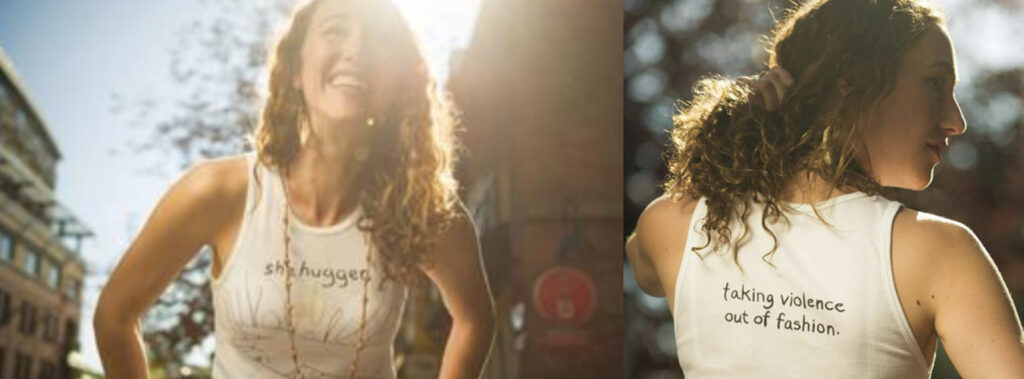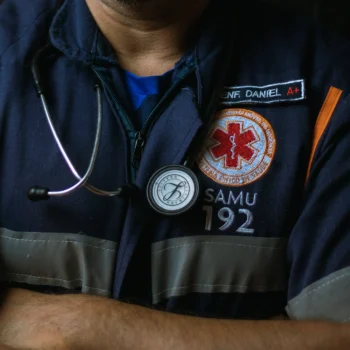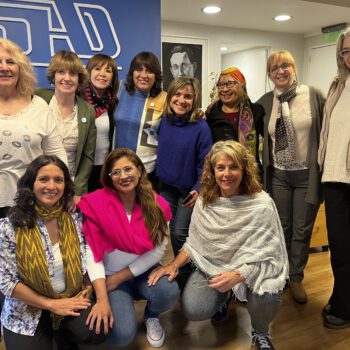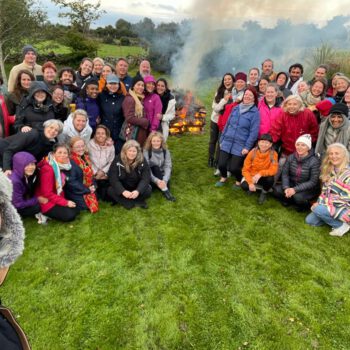Liz developed and facilitated training to address violence against women for the US Military, State Department, Government Agencies, Law Enforcement and Community Organizations. She was Grants and Programs Director for the DC Coalition Against Domestic Violence, the Domestic Violence Systems Advocate & Educator at The Women’s Center, and Program Officer in the Global Health, Population, and Nutrition Department at the Academy for Educational Development.
This post is a short edited excerpt focusing on Liz’s ongoing work to end violence against women and provide accessible trauma-informed support. Hear her full interview on The Gifts of Trauma Podcast.

In International Development, to receive funding, international communities have to present initiatives in the way the global west wants to see them work. There are restrictions around providing aid and programming, not only who is involved, (it’s very scholarly) but how it’s viewed through the lens of white supremacist cultural norms. The reports talk about policies and systems, yet it was small programming efforts outside these systems that made the biggest impact: The student community theatre in India, the women’s groups in Peru, and person-centred approaches everywhere as they were most accessible. Where the system failed to engage people, these small local efforts succeeded.
Approaches like the Theatre of the Oppressed really tapped into people’s emotions, and something about the artistic expression alchemized and addressed issues in an impactful way. These people were not reading reports, they were digging into their emotions. So when we founded Public Spectacle, our mission was to really help people understand domestic violence and intimate partner violence at a cultural level. We used guerrilla theatre, an approach developed to help people tap into what it feels like, sounds like, looks like to be domestic violence.
That frame is so helpful because in this work we get so caught up in definitions and what words look like, but not necessarily the impact they have on our well-being. While training, I always say we’re going to talk about what domestic violence or intimate partner violence or gender based violence feels like, looks like and sounds like. Because until we can do that, the theory of the work hovers above our understanding. When it connects to who we are and our experiences, it’s so much easier for us to say. “I’m willing to be vulnerable and connect with someone else who’s navigating a really difficult situation.”
A big barrier to healing from sexual or intimate partner violence is the walls people raise, whenever these inflammatory topics arise. There’s so much resistance to lowering those walls.
Something else I pay attention to is how our culture normalizes violence, mostly in words and language. How many times have you heard someone say they’re going to take a stab at something or shoot an email to someone? We focused on clothing and reframed the term ‘wife beaters’ (men’s undershirts) into ‘she-huggers’ to highlight how often violence infiltrates everyday conversations. We created an illustration of a woman wearing a man’s undershirt; with her arms hugging herself. She was literally being a ‘she hugger.’ The tagline was “taking violence out of fashion”. And when we sold these shirts, with this image and tagline, we also were mindful that violence is not only in language and fashion. It’s in how we manufacture and consume goods and the violence that can unconsciously inflict on our Mother Earth.
In The Wisdom of Trauma movie, Gabor Mate was talking to a group of women about how it’s the trauma inside us, our unconscious, unacknowledged, buried trauma that leads us to unconsciously reinforce trauma in our language, in our relationships, in ourselves. ‘She Hugger’ was all about self love. because when a woman doesn’t love herself, she’s much more vulnerable to attracting a partner who is going to be abusive to her in the same way she abuses herself. Where does that abuse come from? It’s in our culture. The message of consumerism is, you’re not enough. That’s what abusers tell their partners, “You’ll never be good enough. No one will choose you. I’m the only one who will ever accept you. You’re garbage.” Abusers and our consumerism culture reinforce that inner feeling.
The Wisdom of Trauma movie also illustrates the frenzy of consumerism that comes from the buried or unacknowledged trauma we carry. We try to relieve our trauma though buying what we believe we lack. We buy more and more and more. Our excessive consumerism is literally ravaging our planet.
One of the many different initiatives I joined was Project Peace, in Arlington County. It brought together representatives from the courts and the hospitals and the prosecutor’s office… all these people working together. I remember one activity where we took some red string and tried to visually map out where survivors go for support and what that means. It became a room sized tangled mess of string that very accurately reflected why our systems were not working. .
Years later I joined the Domestic Violence Action Research Collective (DVARC) and thanks to my executive director, Karma Cottman, an incredible collaboration emerged. Washington DC is uniquely situated in a very small geographic area with 9 local universities, all of which had different researchers and research departments. We wanted to harness that expertise to build an evidence base around the prevalence of domestic violence in Washington DC and data that would help reinforce our story. It was all about bringing people together who were previously working separately, about shifting them from silos into collaboration, from slapping on band aids to stopping the bleeding.
The work of DVARC is to tell the story through the data and research that advocates present to government agencies, in funding applications. We know anecdotally that intimate partner violence is extremely prevalent. We have survivor stories that speak to the depth and breadth of what people are experiencing. But we needed numbers that were researched, supported and published by scholarly institutions. Without those it is difficult to get funding to do the work. People who invest in domestic violence support want a return on their investment. And in this field it takes years for survivors to seek safety. Their choices do not lead to quick resolutions. The numbers we present to funders are not huge, rewarding, celebratory numbers. They’re small, methodical successes as individuals navigate their safety. DVARC helped us tell the story with numbers in a way we hadn’t had access to before.
The Gifts of Trauma is a weekly podcast that features personal stories of trauma, transformation, healing, and the gifts revealed on the path to authenticity. Listen to the interview, and if you like it, please subscribe, leave a rating or review, and share it with others in your community.




Comments are closed.